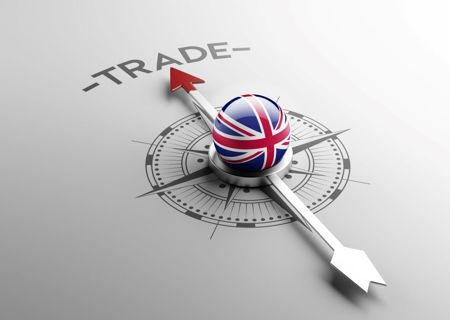
As reported last week, the UK’s current economic and trade issues are not happening in isolation, but within the context of wider disruption.
The IOE&IT Daily Update here brings you five of the most important supply chain stories from around the world you may have missed last week.
Easing supply chains
Supply chain indicators finally seem to be shifting in the right direction, reports Reuters, pointing to a quartering in the value of shipping container rates from Asia to the US west coast compared with last year.
A key benchmark for shipping prices – the Drewry composite World Container Index – recorded an average value of $3,689 per 40-foot container, down from over $10,000 in September 2021.
The New York Federal Reserve Global Supply Pressure Index also showed stress in the world system eased in September to the lowest level since December 2020.
However, Daniel Swan, a supply chain expert with McKinsey, said a new concern is that demand outlook is less clear, and companies now find themselves holding too much inventory.
An update from logistics giant Maersk also points to a general easing of supply chain issues, bringing “much-needed stability and resilience across our global network”.
Ukraine grain threat
Russia is threatening to pull the plug on the deal that allows Ukrainian grain exports to leave the country, unless exports of its own grain and fertilisers are facilitated, reports Politico.
The current deal, created in July for an initial four months, has seen more than seven million tons of Ukrainian grain travel through a secured route from ports in Odesa.
However, Ukrainian officials have grown increasingly worried about how long the deal could last.
The FT reports that there is a growing backlog of ships trying to move the grain, with average time for inspections going up from 10 to 15 days.
The deal is up for renewal next month, and Russia had been reluctant to send additional inspectors to help clear the backlog.
China slams US chip policy
China’s top trade group for the computer chip sector has said it is “disappointed” by recent US export controls and warned they could stress global supply chains further, reports Al Jazeera.
As previously covered by the Daily Update, the US Department of Commerce passed a sweeping set of regulations to prevent China from receiving exports of high-end US chips or the machinery used to make them.
The China Semiconductor Industry Association (CSIA) criticised the move, saying: “Not only will such unilateral measure harm the further global supply chain of the semiconductor industry, more importantly it will create an atmosphere of uncertainty.”
Transnet Strike
In South Africa, a wages strike by workers at one of the continent’s largest ports is causing supply chain disruption for perishable goods and valuable minerals, reports Reuters.
Transnet Port Terminals said the strike had led to staff shortages and impacted waterside and landside operations at Durban port, which handles 65% of South Africa’s container volumes.
Unions rejected a revised wage offer of a rise of 5.3% and said they plan to intensify a strike that’s hobbling most of the nation’s mineral exports, reports Bloomberg.
Normally South Africa exports about 476,000 tons of bulk minerals a day, but the strike has limited this to 120,000 tons.
The strike could also disrupt fruit exports from Transnet’s Cape Town port just as the deciduous fruit season begins.
Third Liverpool port strike looms
And back home, the threat of another strike at the Port of Liverpool is hanging over the UK shipping industry.
With the second strike at Liverpool finishing today (17 October), a third walkout has been confirmed.
The BBC has said that the union Unite has fixed dates for the next industrial action as 24 October until 7 November.
Companies reliant on deliveries via Liverpool and the Port of Felixstowe, which has also seen strike action, said that diversion of trade away from the UK ports has created congestion and delays at other ports across Europe.
The Drinks Business reports that Crane Worldwide Logistics’ EMEA director Andreas Braun warned that the delays in many drink products arriving into the UK once off a vessel could be as long as 45 days.
Unite told CNBC it will continue to hold strikes until the pay offer of Peel Ports, which runs Liverpool docks, matches inflation.



